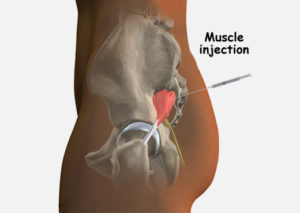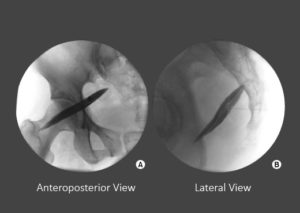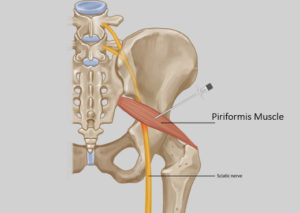Facet joints (joints in the spine), which are the knobby surfaces where vertebrae join together, can begin to break down after years of use. Nerve irritation is a common by-product of facet joint deterioration. This pain, whether alone or accompanied by other symptoms, can be very disruptive to your life, taking you away from your loved ones or even just a walk in the park.
Click on why the facet joints deteriorate to know the symptoms of spinal arthritis or facet joint pain.
Facet joint denervation or RFA or radiofrequency ablation of nerves connected to painful joints, is a minimally invasive, pinhole technique used to treat central neck or back pain caused by arthritis or injury to the facet joints. This procedure is also called radiofrequency neurotomy or radiofrequency rhizotomy.
The facet joints are small joints at the back of your spine that help keep the spine straight. These joints can be damaged by:
- Normal activity
- Aging
- Inflammatory diseases such as rheumatoid arthritis
- Injury or accident
The damaged facet joints can cause pain by pressing on nerves. The treatment involves testing which nerves are causing pain, then treating them to stop sending pain messages.
Your doctor uses a type of X-ray called fluoroscopy to guide a needle like instrument to the nerve connected to the damaged joint. The doctor injects local anesthetic to numb the nerve. Next, you compare your pain levels before and after the LA. If the injections reduce your pain, you are the right candidate for this wonderful procedure ie radiofrequency facet denervation.
Name of these tiny nerves is medial branch. Except sending pain signals to brain, these nerves do not have any other utility, so can be safely targeted.
Click on radiofrequency ablation to know more about this procedure.
This is an OPD procedure. You will need to follow eating and drinking restrictions. Though you may walk comfortably after sometime but it’s better if someone accompanies you to take you home. You may receive medication to relieve pain as you heal.
We also perform percutaneous disc treatments with minimally invasive, pinhole technique, that can treat the other more important reason of back or neck pain. Our spine specialists are able to use pinhole techniques with no cut/ incision and no bleeding to access the spine, leading to a quicker recovery and much less risk of complications as compared to traditional open back surgery.
Radiofrequency denervation success rates vary but typically about 80% patients get moderate to good pain relief on a long term basis. Overall, success rates are greater in the cervical spine (neck) than in other areas.



